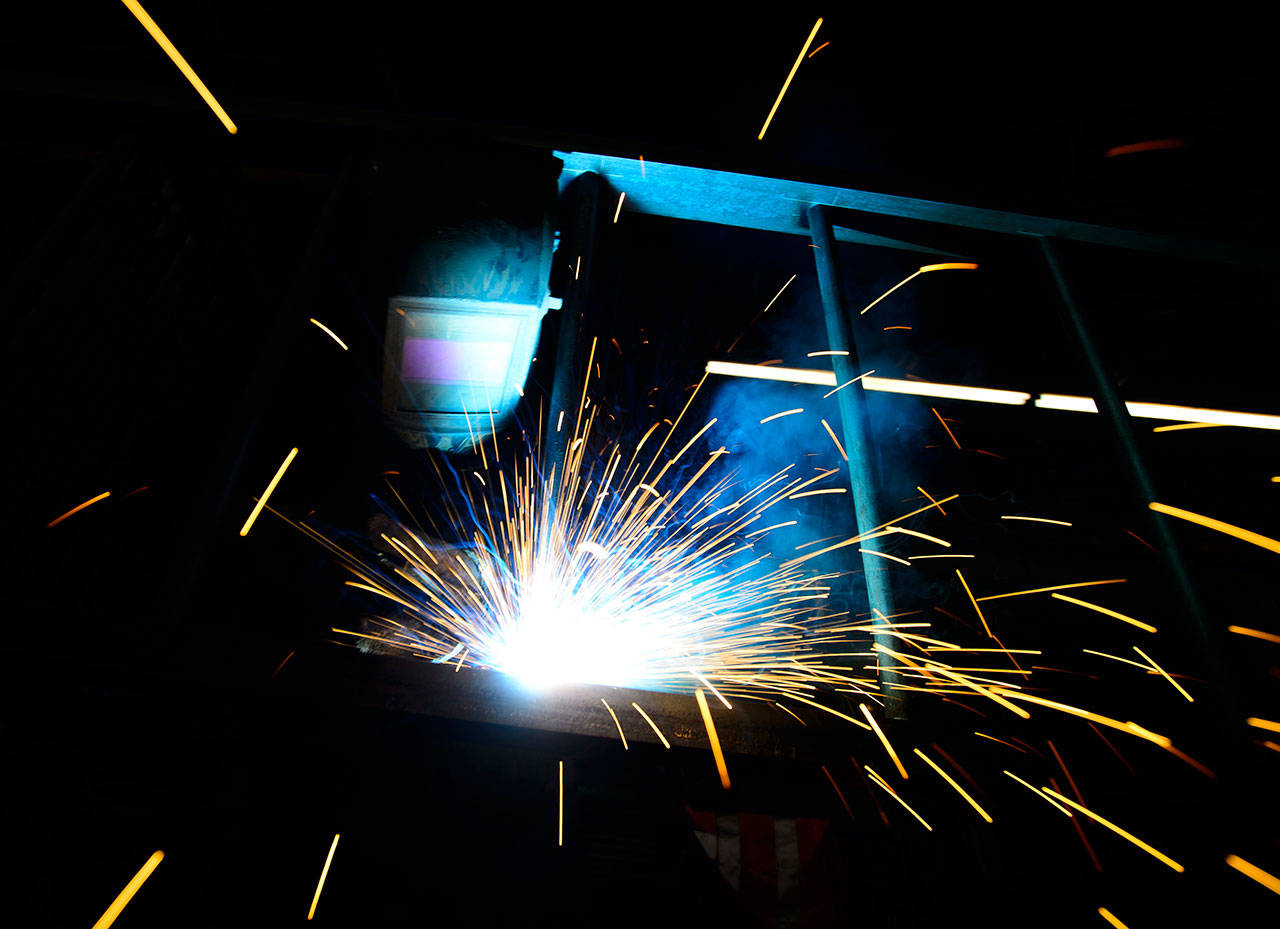“Trade wars are good, and easy to win.”
As long as you’re not one of the casualties.
And the casualties could mount in Washington state if President Trump moves ahead with planned global tariffs — a 25 percent tax on imported steel and 10 percent on aluminum — retaliation against U.S trading partners and an attempt to protect domestic steel foundries and aluminum smelters.
The tariffs, says Lori Otto Punke, president of the Washington Council on International Trade, will result in increased prices for goods for consumers and materials for manufacturers and invite retaliation from trading partners that could hurt exports by the state’s agriculture producers, manufacturers and service providers.
“These proposed tariffs will undermine Washington state jobs and prosperity,” Punke said in a statement from the state trade advocate.
This means more than Boeing having to pay more for aluminum, Punke said. With about 40 percent of the state’s jobs tied to trade, retaliation by our trading partners could have nearly immediate impacts, particularly for agricultural producers.
“We’re very concerned about retaliatory measures, from Canada, the (European Union) and China, because this casts such a wide net,” Punke said by phone from Washington, D.C., where she was scheduling meetings with the state’s congressional delegation regarding trade and the tariff proposals.
“The E.U. has already hinted at agriculture retaliation,” Punke said, which if it follows the path of previous trade skirmishes, could mean Washington soy, wheat, apples and potatoes would be on a tariff target list.
As of 2015, Washington state agriculture employed more than 96,000 people and generated more than $4.4 billion in wages, according to the most recent data from the state Employment Security Department. And that employment has been growing steadily over a decade, up from about 75,000 in 2005.
Weigh that number against the few thousand currently employed in the aluminum and steel industries in the state, out of a total of 287,000 manufacturing jobs as of December.
Not that Washington state’s aluminum and steel industries aren’t hurting.
As recently as 25 years ago, six aluminum smelters operated in the state, benefiting from inexpensive — and often utility subsidized — electricity. Today, Alcoa operates only one aluminum plant in Ferndale, employing about 550. A second plant in Wenatchee was “curtailed” in 2016. While not closed and kept in operating condition for a possible restart at some point, the action forced the layoffs of about 420 workers.
But if you were expecting Alcoa to back the president on his proposed tariffs, you’d be wrong.
“We believe vital trading partners, including Canada, should be exempt from any tariff on aluminum. The aluminum industry has an integrated supply chain and actions should not penalize those that abide by the rules,” the aluminum maker said in a statement, objecting to the across-the-board nature of the tariffs.
And cheap foreign aluminum and steel aren’t the only obstacles to those jobs in the state. The industries are facing increased costs for energy, labor and environmental regulation. There hasn’t been a new aluminum smelter built in the U.S. since 1980, and the aging smelters require more labor and electricity to operate than newer plants built elsewhere.
And nothing about the tariffs will prevent the manufacturers who use aluminum and steel from moving production across borders to avoid the trade tax.
Rather than blanket tariffs, President Trump has other and more precise tools he can use to address unfair trade practices, most specifically China’s dumping of heavily subsidized steel and aluminum. It could file a complaint with the World Trade Organization, just as Boeing has successfully done in the past with Airbus. While the process takes year, it would likely prevail.
Nor would the tariffs provide leverage in renegotiating NAFTA with Canada and Mexico, as President Trump believes. Instead, the tariffs will likely complicate talks with two of our largest trading partners.
Rather than launch a damaging trade war and invite hardships on thriving and important industries in this state and the nation, the Trump administration should take more measured steps to address unfair trade.
Talk to us
> Give us your news tips.
> Send us a letter to the editor.
> More Herald contact information.

























